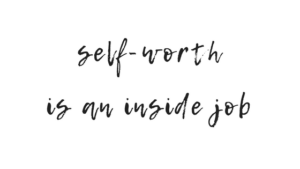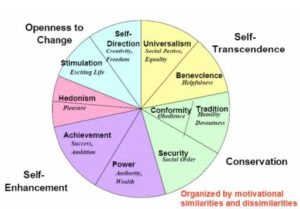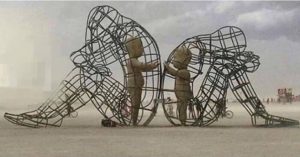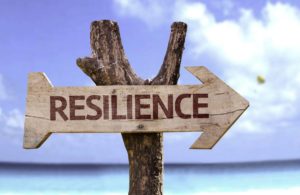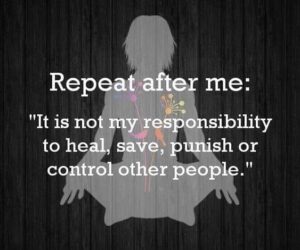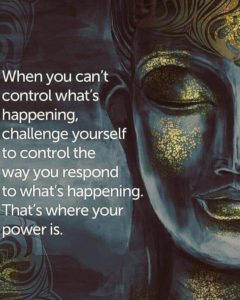Self-worth – what is it? It’s a mental state whose genesis is how we judge ourselves. Our self-worth is a resultant of experiences, upbringing, cultural norms, beliefs about the world and ourselves, a sense of agency or attractiveness. It is the self-worth that determines the quality of life to a large extent. Self-worth, or the way in which we see and evaluate ourselves, affects many everyday decisions, including what kind of work we choose, who we associate with, what activities we undertake or how we feel in social relationships. The value we attribute to ourselves is not something fixed once and for all. Self-worth is changing. Some experiences can quickly lower it, but it’s worth remembering that there are ways to develop self-worth. The point is not to artificially inflate the vision of yourself, but to learn about your strengths, learn to respect yourself, extract your own resources and consciously use them.
So… what is self-worth?
One of the definitions of self-worth says that it is “a tendency to experience yourself as a competent person in dealing with the challenges brought about by life and also deserving of happiness” (Dr. N. Branden). By developing or strengthening a positive and adequate self-image, it is worth thinking about how to build a tool that helps in a satisfying life, not patching deficits. I encourage you to discover and develop your resources, not to look for “faults to repair”. It is not about jumping to extreme, uncritical self-admiration, but about getting to know self and gaining trust and respect for that person that we are really – without unnecessary modesty, but also without excessive un-criticalness. How we think about ourselves affects many areas of everyday life, i.e.: family, work, relationships, undertaken activities. Therefore, it is worth thinking about strengthening the sense of self-worth – let it result from a reliable evaluation of experiences, not opinions of others about us. I encourage you to create your definition of self-worth. When thinking about working on self-worth, it is worth asking yourself a few questions: “What does self-worth mean to me?”, “Why should I have high self-worth?”, “What will change in my life (what I will do differently, how I think what emotions will accompany me then?)”,” How do I know that I have a strong enough sense of self-worth?”. People aware of their value:
– they often experience a sense of security, agility and peace;
– they cope better in difficult and crisis situations;
– they are more willing to undertake activities according to their own needs, giving them a sense of satisfaction;
– when making decisions they are less susceptible to the influence of the environment;
– they are open to criticism or the opinion of the surroundings on their own subject, but they are not the foundation of how they think about themselves;
– they are more often accompanied by a sense of independence and self-determination.
How to build self-worth?
Often people with low self-worth have little knowledge about themselves. It happens that they know more about others than about themselves, for example what family members, friends or work colleagues like, and when asked about their tastes, they have difficulty exchanging basic preferences. I also encourage you to write down the following questions on the sheet: Who am I? What I like? What makes me happy? What roles do I fulfill? (e.g. husband, partner, daughter, father, architect, runner, etc.) In what situations do I feel comfortable and uncomfortable? What do I dream about? What is important to me? Reviewing basic information about yourself can be the first step to continue working on your self-worth.
Avoid generalizing: Messages such as “I always” and “I never” are not conducive to understanding, either with the outside world or with self. That is why it is worth sticking to facts and not generalized assessments. The statement of the type: “I can never get along with people?” When we look closer – it is a huge abuse. Usually, however, we have colleagues in school, we are able to communicate with the team at work, etc. Therefore, the real sentence may be: “I not get along with everyone.” Another issue is whether we need to get along with everyone to have sufficient self-worth. I encourage you to consciously catch a few generalizing beliefs about yourself and to re-edit them.
Treat failures as a lessons: Challenges – not obstacles, lessons – not failures – it sounds like a motivational speaker slogan, but it is worth thinking about changing your perspective and see if it does affect the way in which you think about yourself and your experience. Try to recall an experience that can be assessed as difficult, e.g.: job loss. The next step is to try to broaden the perspective with which we can see this experience. For this purpose, it is worth answering a few questions:
1. What did this event teach me? Losing a job is not the end of the world, I can verify the list of friends and kind people, I saw how big network of social contacts I built announcing that I am looking for a job, I made sure I can count on loved ones, etc. 2. What good did I learn about myself in this situation? I can experience a lot of stress and come back to balance, I’m creative looking for a new job, etc.
3.What traits did I show in this experience? Strength, because despite the crisis, I tried to find another job. Courage, because I was able to try the work behind the current industry. Stubbornly, because despite the initial lack of job proposals, I continued to apply for subsequent positions, etc.
4. What good has given me a difficult situation? I know that after losing my job, I will manage somehow, I find myself in a situation of change and feel that I am better prepared for further changes, etc.
Usually, we rarely analyze crises from positive sides, but I encourage you to try to do this exercise.
Make a list of your successes and achievements: It is worth approaching this task by trying to exclude self-censorship and internal criticism. At the beginning it may be difficult, but you have to make attempts and shamelessly prepare the advertising folder of yourself. Let there be achievements in every area of life, even minor and obvious to us, for example, the fact that you speak a foreign language for a large percentage of popups is quite an achievement, even if you think that success can be resolved only after learning the fifth language. Look into the list prepared once in a while, supplement it with new discoveries about yourself. Limit comparing yourself to others. Finding ten, a hundred or even a million people, which we judge as inferior to each other will not translate into a permanent increase in self-worth. Comparing yourself to others is an extremely unstable method, because you will always find someone smarter, faster, better built, wealthier, etc. The time and effort it usually takes to compare yourself to others is worth using to inspire them. If I admire a colleague for a style or figure, it is worth finding out or observing what it does, that it looks like, where does motivation come from, etc. At the same time, this procedure will help verify if actually having a colleague’s style is something that we want and which is consistent with our I need.
Refer to the facts: It’s important to work on the habit of making what you think about yourself real. Often beliefs about ourselves are not true to reality, which is why it is important for negative messages to be confronted with facts, for example:
– belief: “I’m stupid”, the facts: “I have a diploma that confirms my qualifications, I can express myself on many topics, I have several interests – what else does I need to recognize that I am wise enough?”;
– belief: “no one likes me”, the facts: “I have friends, acquaintances, relatives in the family, in the fitness club I made contact with one interesting person – what else do I need to acknowledge that I’m liked enough?”.
Decide: After updating your knowledge about yourself, preferences, needs, values, etc., start making decisions based on your knowledge about yourself. The gradual taking over of the helm will not only strengthen the sense of agency, but will also help build positive beliefs about yourself.
Help of a psychotherapist :Sometimes self-attempts to strengthen the sense of value do not bring sufficient effects. Then it is worth asking for specialist support. Working with a professional will allow to discover the deeper causes of difficulties in the area of self-esteem and to develop effective and adequate ways to strengthen one’s self-worth. By working out specific experiences from the past, we can influence how we feel and function today, thus improving the quality of everyday life.
Worth knowing: What makes some people aware of their value?
Knowing our own value is influenced to a large extent by childhood and adolescence. That’s when capital is built, with which we as adults move into the world. Beliefs about us, messages that we get from the outside world create a kind of filter through which we see ourselves and the reality that surrounds us. Of course, the role of the self-worth built during this period can not be underestimated, but it should be remembered that you can always work on it. It is worth thinking about whether the choices we make in adult life are based on an adequate assessment of our capabilities and preferences or opinions of third parties.
